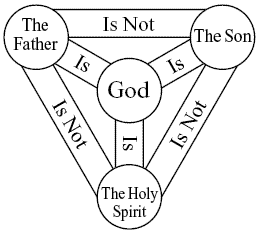Will/does God give more Scripture by way of revelation?
Based on the Word of God, I believe that the Bible is complete in this church age (1 Cor 13:9-10).
But let’s say you honestly disagree. If you are correct and if God were to choose to give new revelation, is there a way for us to distinguish truth from lie? God is clear that the foundation has been laid (Eph 2:20). And on at least four occasions warns against adding to or taking from what He has said (Deut 4:2; 12:2; Prov 30:6; Rev 22:18).
After each of the above passages was written, Bible believers continued to identify and include writings (books) in the canon of Scripture. Even the Bible as we know was not yet in its final form of sixty-six books when John wrote his Revelation. So how did God orchestrate the final pieces of His Scripture to be put in place? Why were some apostolic writings not included?
“How shall we know the word which the Lord, hath not spoken?” (Deut 18:21). This question was asked because God had just commanded that false prophets were to be put to death. How were God’s people supposed to know who to kill and who to follow? Whose books to burn and whose books to read?
The most obvious way would be the failure of the man’s prophecy (Deut 18:22). If the thing didn’t come to pass, the false prophet was to be killed. The Apostles all demonstrated great power themselves – giving proof that they had been sent from God, but this wasn’t enough.
Because even if the sign or wonder did come to pass, that did not mean that the prophet or apostle had necessarily been sent from God. In fact, God said that He would allow false prophets to rise up, make accurate predictions and demonstrate great power in order to prove whether or not the people actually loved the Lord (Matt 7:21-23; 1 John 4:1-3; Deut 13:3). The children of God were to be so familiar with His Word that they would instantly recognize false doctrine. When the supposed prophet or apostle spoke, the question had to be asked, did his message, theology and definition of God agree with everything already stated in Scripture (Deut 13:1-3)? In order to answer this question, you must know the Bible for yourself.
Dear friend, it isn’t enough to love a god. But do you love the God of the Bible? And do you love the God of the Bible enough to be willing to recognize a false god even when he comes as an angel of light (2 Cor 11:14)? Man’s definition of God (whether yours or mine) doesn’t matter. What does the Bible say? (Gen 1:1; Psalm 90:2; Heb 13:18; James 1:17)
Some people have faith in faith. Some people have faith in what they’ve experienced. Some put their faith in their pastor, priest, or prophet. God says we are to put our faith solely in His Word.
“If there come any unto you, and bring not this doctrine, receive him not into your house, neither bid him God speed.” (2 John 1:10) “But though we, or an angel from heaven, preach any other gospel unto you than that which we have preached unto you, let him be accursed.” (Galatians 1:8)










